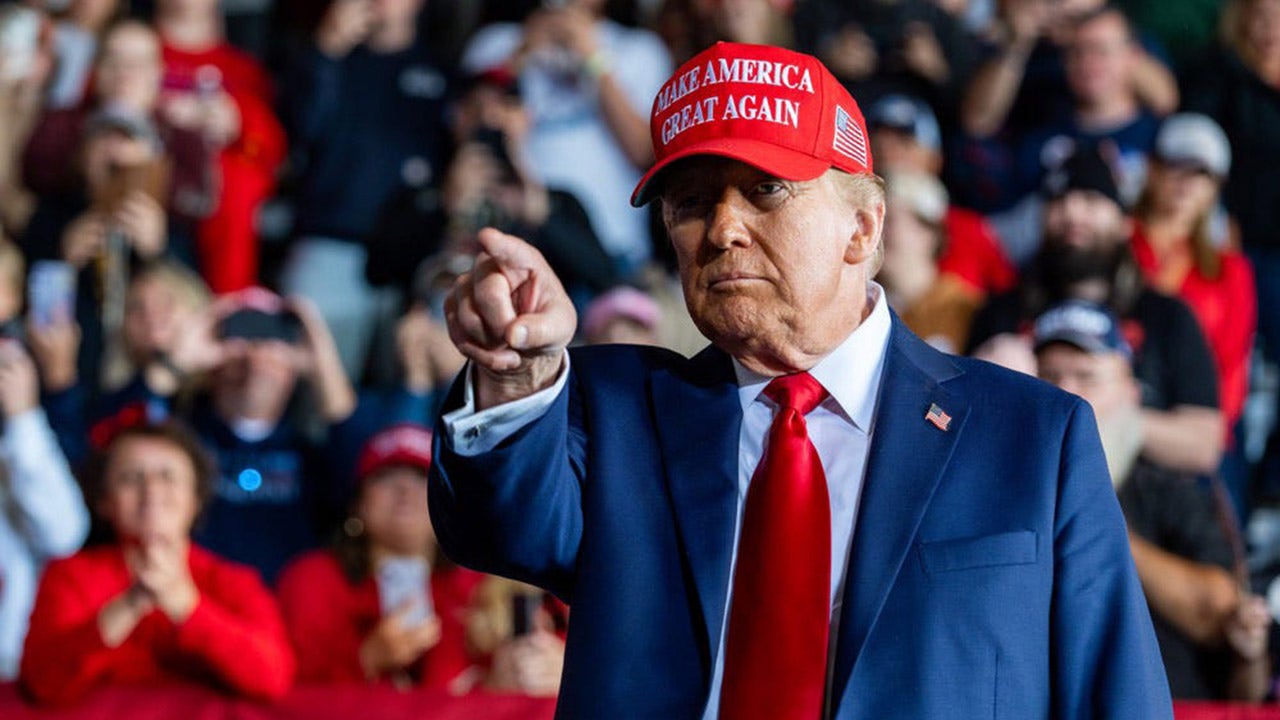Germany faces challenges with its collapsing government and the impending Trump trade war.
Donald Trump, the president-elect, promises to implement tariff hikes in his campaign plan.

The re-election of former President Donald Trump and the collapse of the coalition government under German Chancellor Olaf Scholz have left Germany facing an uncertain economic and political future.
Trump promised to raise import tariffs for both allies and adversaries under the "Trump Reciprocal Trade Act," which would equalize U.S. tariffs with those imposed by each country.
"If any country imposes a 100 or 200 percent tariff on American-made goods, we will retaliate with the same exact tariff, he stated in his campaign plan. "If they impose tariffs on us, we will impose tariffs on THEM—an eye for an eye, a tariff for a tariff, the same exact amount.""

The president-elect has not yet confirmed whether he still plans to increase tariffs on specific countries, as he has also proposed a 10% tariff on imports from all countries and 60% duties on imports from China, according to a Reuters report.
Trump also targeted the European Union (EU) as a "mini China" and threatened the bloc with financial consequences.
""They won't take our cars or farm products. They sell millions of cars in the US, but they will have to pay a high price," he said to supporters at an October rally in Pennsylvania."
Experts caution that increasing tariffs, which are borne by importers, could result in global cost increases and inflation, including in the U.S.
The German Marshall Fund (GMF) reported earlier this month that Germany's Institute for Economic Research in Cologne estimated that the promised Trump tariffs would cost the country approximately $127 billion over the next four years.

"The GMF stated in its report that Trump's victory is not favorable for Germany, which relies on U.S. security and benefits from open markets. Additionally, uncertainty in Europe's largest economy is not ideal when the EU needs to navigate a world where the U.S. president is not expected to uphold the traditional, rules-based international order."
The collapse of Scholz's coalition government in January, following his dismissal of Finance Minister Lindner, could jeopardize Berlin's international standing, in addition to Germany's flagging economy.
A confidence vote will take place in Germany on December 16, and it is predicted that Scholz, being in a minority position, will likely lose.

It is possible that German President Frank-Walter Steinmeier will dissolve the parliament and call for elections, although they are not scheduled to take place on Feb. 23, 2025.
The EU faces a potential trade war with the Trump administration as one of its leading nations, both geopolitically and economically, will essentially be a lame duck while Berlin waits to see who will be next to lead the country.
Friedrich Merz, the German opposition leader who may become the next chancellor, stated his intention to negotiate with Trump.
In an interview with Stern magazine, Merz reportedly stated that Germany has not effectively articulated and enforced its interests, and this needs to change.
"According to a Bloomberg report, Merz stated that the Americans are taking a more aggressive stance. It is not fair for only one side to benefit, and instead, both sides should come to a mutually beneficial agreement. Trump would refer to this as a deal."
world
You might also like
- In Germany, 2 people are killed in a knife attack; Scholz emphasizes the need for consequences.
- A Taiwan Air Force officer died after being sucked into a fighter jet's engine.
- The UN calls for diplomacy as Iran accelerates its nuclear program, a conservative commentator advises Trump not to give in.
- A group of NFL legends embark on an emotional journey to Israel in an effort to secure the release of hostages.
- Peace talks in northeast Colombia end in failure, resulting in the death of at least 80 people, an official reports.



















